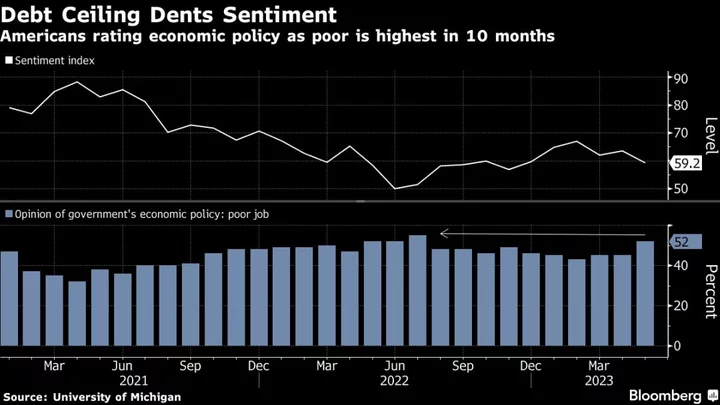Sweden’s financial stability faces increasing near-term threats from a heavily indebted commercial property sector, the country’s financial watchdog warned.
Commercial real estate owners in Sweden should reduce debt and strengthen their balance sheets to avoid more turbulence after cracks in the system have appeared in recent weeks, the Financial Supervisory Authority said in its stability report on Monday.
Against a backdrop of sharply rising market rates, Sweden’s property firms must refinance more than $40 billion of maturing bond debt over the next five years, sparking concern over the financial viability of many highly leveraged landlords. One of the country’s biggest, Samhallsbyggnadsbolaget i Norden AB, has started a strategic review that could result in a sale of the company.
“There is a heightened risk that there will be turbulence on financial markets,” FSA General Director Daniel Barr said. “Our assessment is that the Swedish financial system is resilient, with well-capitalized banks, but we need to follow developments and be ready to act.”
The firms are particularly vulnerable due to high leverage and many of them won’t be able to cope with higher funding costs, Henrik Braconier, the watchdog’s chief economist, said at a press conference.
“The companies have taken on a lot of debt, and it’s not sustainable in the long run in the interest rate environment we’re in,” he said. “We see a continued need for the most vulnerable companies to manage the problems by making sure to get more capital, not paying too much dividends and selling off assets.”
The agency has longed warned about increasing risks in the commercial property sector. While those risks are large, “individual companies’ problems should not be equated with acute problems in the entire Swedish property sector,” it said in the report.
(Adds comments from FSA’s Chief Economist from fifth paragraph)









